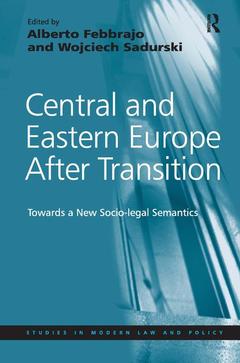Description
Central and Eastern Europe After Transition
Towards a New Socio-legal Semantics
Author: Sadurski Wojciech
Coordinator: Febbrajo Alberto
Language: English
Subjects for Central and Eastern Europe After Transition:
Keywords
constitutional; court; wojciech; sadurski; cee; country; european; university; press; justice; Open Society Institute; EU Governance System; EU Legal Order; Vice Versa; EU Constitutional; Cee Country; EU Governance; EU Law; EU Acquis; EU Legal; European Legal Professions; EU Institution; Constitutional Courts; EU Member State; EU Enlargement; Civil Law Notariats; Nice Charter; External Legal Cultures; EU Membership; Romanian Constitutional Court; West Germany; Polish Prosecutors; EU Value; EU Issue; EU’s Eastward Enlargement
Approximative price 177.01 €
In Print (Delivery period: 14 days).
Add to cartPublication date: 08-2010
Support: Print on demand
Publication date: 11-2016
· 15.6x23.4 cm · Paperback
Description
/li>Contents
/li>Biography
/li>




